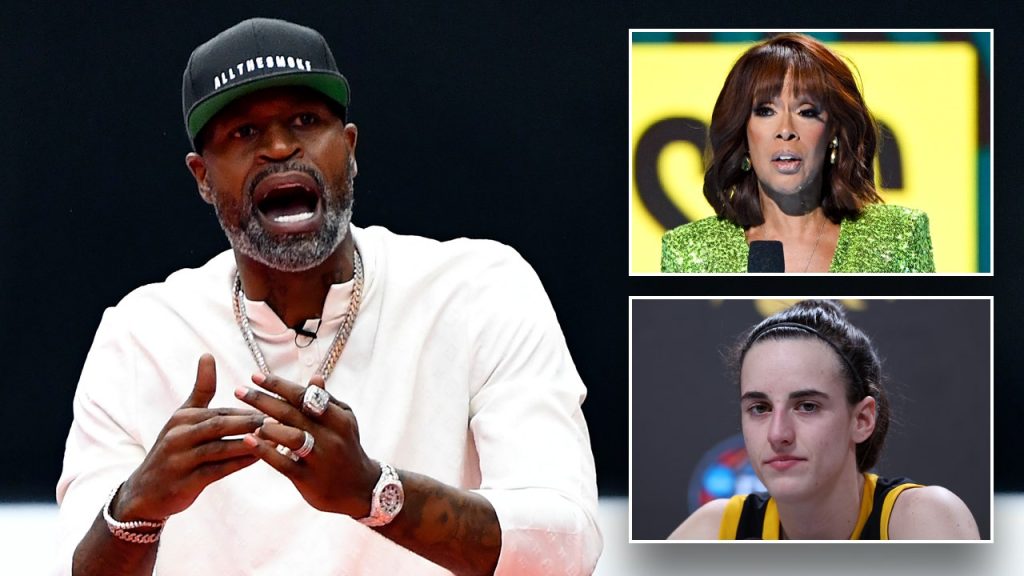NBA champion Stephen Jackson recently criticized CBS host Gayle King for her interview with South Carolina Gamecocks women’s basketball coach Dawn Staley. During the interview, King mentioned that they were all cheering for Iowa and Caitlin Clark, which Jackson deemed as demeaning to Staley. Jackson took to social media to express his disapproval, stating that King’s reference to Clark was unnecessary and disrespectful. He emphasized the importance of uplifting Staley and recognizing her achievements without overshadowing them with mentions of other players.
Staley led the Gamecocks to an undefeated season and secured her third championship with the team. Despite their success, King’s comments during the interview seemed to belittle Staley’s accomplishments by focusing on another player’s popularity. Jackson criticized King for not giving Staley the recognition she deserved and accused her of prioritizing other narratives over Staley’s story. He also questioned King’s credibility as a journalist and suggested that she receives special treatment in media circles due to her connection with Oprah Winfrey.
In response to the backlash, WNBA champion A’ja Wilson dismissed accusations that she was jealous of Caitlin Clark and reiterated her support for Staley. Wilson emphasized that there was no reason for her or other Black individuals to feel envious of Clark, as they were all fans of both athletes but believed that Staley deserved proper recognition for her achievements. The controversy surrounding King’s interview with Staley shed light on the importance of giving proper credit to Black athletes, particularly women, in the media.
While Clark ultimately became the No.1 pick in the WNBA Draft, South Carolina’s Kamilla Cardoso was selected as the No. 3 pick by the Chicago Sky. The Gamecocks are poised for another successful season, with key players such as Raven Johnson, Bree Hall, Te-Hina Paopao, MiLaysia Fulwiley, and Tessa Johnson expected to return for the upcoming season. Despite the controversy surrounding King’s interview, Staley and her team remain focused on their goals and are determined to continue their success in the future.
The incident involving King’s interview with Staley highlighted broader issues of representation and recognition within the sports media landscape. Critics argued that Black athletes, particularly women, are often overlooked or overshadowed by their counterparts, and it is essential for journalists to give them the acknowledgment and respect they deserve. Jackson’s comments underscore the need for media professionals to be mindful of the narratives they promote and to ensure that all athletes receive fair and equitable coverage in the media.
As the sports world continues to evolve, discussions around diversity, equity, and inclusion become increasingly important. The controversy surrounding King’s interview with Staley serves as a reminder of the challenges that Black athletes face in securing recognition and fair treatment in the media. Moving forward, it is crucial for journalists and media outlets to prioritize diversity and representation in their coverage and to support athletes from all backgrounds in achieving their full potential. By amplifying the voices and stories of Black athletes like Dawn Staley, the sports media can create a more inclusive and equitable environment for all athletes to thrive.


